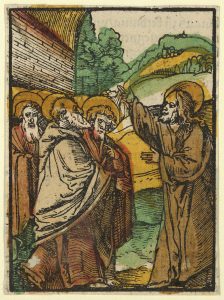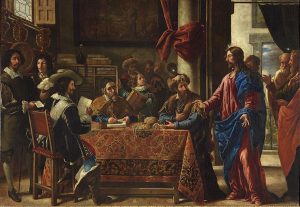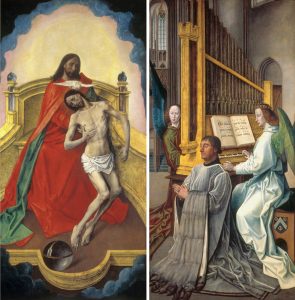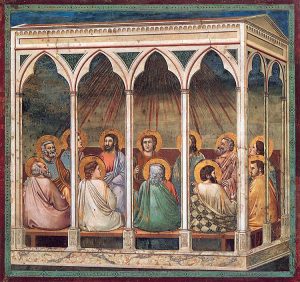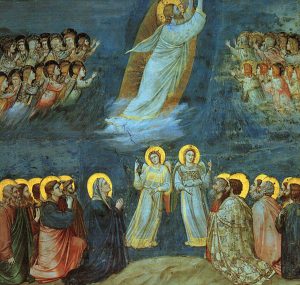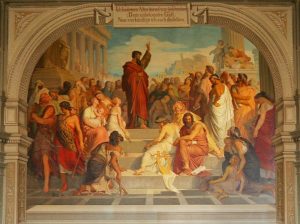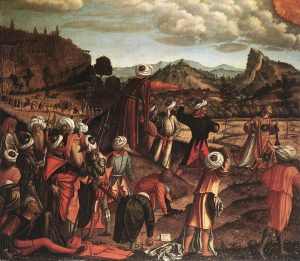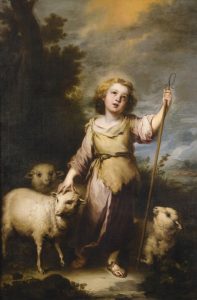Illuminations on the Lectionary readings for June 25, 2023 (Pentecost 4A)
First Reading (Track One): Genesis 21:8-21
Even the greatest Bible heroes are hardly plaster saints. Sometimes they seem the furthest thing from role models.
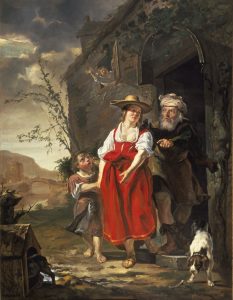
The banishment of Hagar and Ishmael (1653-1654), oil painting on canvas by Gabriel Metsu (1629-1667). Museum De Lakenhal, Leiden, The Netherlands. (Click image to enlarge)
From Adam and Eve’s taste for forbidden fruit down through Joseph, Jacob, Moses and King David to doubting Thomas and denying Peter, the great figures in Scripture are just about all flawed and broken. Yet God loves them all the same, just as God loves us. In Sunday’s Track One first reading we hear a particularly troubling story about Abraham. Even the patriarch of the Judeo-Christian family, we discover, was capable of such disturbing behavior as sending his slave, Hagar, and their son, Ishmael, into the desert to die. But God intervened, and promised them a future as bountiful as that of Abraham and Sarah’s own son, Isaac.
First Reading (Track Two): Jeremiah 20:7-13
The prophet Jeremiah is angry and upset. God has called him to prophesy to the people about the destruction that their failure to be righteous and just will bring upon them, but they will not listen. Worse, they laugh and deride him when he shouts about their impending peril. Anger scorches his bones like a burning fire, and he cannot hold it in. Even his close friends wait for him to stumble. But Jeremiah knows that it is his persecutors who will stumble, for God is with him like a warrior at his side.
Psalm (Track One): Psalm 86:1-10, 16-17
As our Genesis reading reminds us that God loves us even when we aren’t very nice, the Psalmist sings out the prayerful assurance that God loves us even when we aren’t very happy. Poor and needy, fearing death, the Psalmist cries out, trusting in a good and forgiving God to answer their prayers and make their hearts glad.
Psalm (Track Two): Psalm 69: 8-11, (12-17), 18-20
This Psalm echoes the themes in the Jeremiah reading that we hear just before it. Like Jeremiah, the Psalmist spoke for God, only to become the subject of scorn and reproach from his own friends and family, and even had songs sung about him by drunkards at the city gate. The Psalmist calls on God to save him from their hatred, to turn to him in compassion and save him from his enemies.
Second Reading: Romans 6:1b-11
If Paul’s tone in this short passage from his letter to the early church in Rome seems intense, that may be because Paul so fiercely wants us to grasp his theological point: In baptism, everything changes, and that matters! Baptism unites us with Christ so that we share in his death and resurrection. In baptism we symbolically “die” to our old life enslaved by sin. In baptism we are born to a new life, freed from sin through God’s abounding grace, dead to sin and alive to God through Jesus.
Gospel: Matthew 10:24-39
We think of Jesus as the Prince of Peace, yet here we find him telling his disciples that he has not come to bring peace but a sword! Family members will be set against each other, he goes on, warning his followers that they must leave their families to follow him. These disturbing verses continue Jesus’s stern instructions to the apostles that we heard last Sunday. This may reflect the difficult times when the evangelist we know as Matthew was writing his Gospel: The Roman Empire had crushed a Jewish rebellion, leaving Jerusalem shattered and the Temple in ruins. Jewish Christians and Rabbinic Judaism were splitting apart in angry rivalry. In such a time it would have been not only difficult but dangerous to follow Jesus’s Way.

